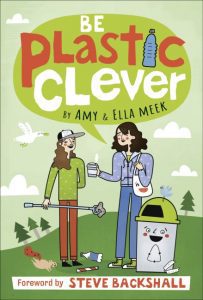A matching activity to support research about four main greenhouse gases. Children can identify different sources of greenhouse gases and also discuss ways to reduce emissions. Images could be used on their own as a starting point for research about greenhouse gases and their effects.
https://www.kidsagainstplastic.co.uk/wp-content/uploads/2020/09/Climate-Change-Greenhouse-Gases.docxData (bar graph) to show the greenhouse gases produced by the plastic life cycle and projected emissions if plastic production continues. This resource can support data interpretation, making predictions and discussions about the effect of the plastic production on the Earth’s climate.
https://www.kidsagainstplastic.co.uk/wp-content/uploads/2020/09/Climate-Change-Plastic-Life-Cycle-and-Greenhouse-Gases.docxSimple explanations of the journey of single-use plastic, from the extraction of oil, to the production of plastic, to the management of plastic waste. This resource can be used to order the journey of single-use plastic but also as a starter to discuss the effects of the journey on the environment. Children could consider how we reduce use of fossil fuels/ greenhouse gas emissions and plastic pollution at each point of the plastic life-cycle.
https://www.kidsagainstplastic.co.uk/wp-content/uploads/2020/09/Climate-Change-The-Life-of-Single-Use-Plastic.docxMatching activity to show the different disposal methods for plastic waste. Children could match the images and descriptions, rank the disposal methods according to the greenhouse gas emissions they create or use as stimulus for PMI (plus, minus, interesting) discussions. Which method would they recommend? How can we reduce the amount of plastic waste created? NB. The Download button will allow you to download a Zip file containing the two lesson resources.
https://www.kidsagainstplastic.co.uk/wp-content/uploads/2020/09/Climate-Change-Where-does-plastic-go-PMI.zip
September 4, 2020
Environment discussion stimulus image
Use this image as a discussion prompt or as part of the 'Where Does Plastic Go?' lesson

September 4, 2020
Incineration discussion stimulus image
Use this image as a discussion prompt or as part of the 'Where Does Plastic Go?' lesson

September 4, 2020
Landfill discussion stimulus image
Use this image as a discussion prompt or as part of the 'Where Does Plastic Go?' lesson
July 3, 2020
Plastic Free July
Every year millions of people around the globe take part in the Plastic Free July challenge, choosing to refuse single-use plastics and drastically reducing the amount of plastic waste ending…
May 17, 2020
Infographic – Toys and Plastic
A colourful and engaging infographic explaining the environmental impact plastic toys can have on the environment. Credit: Stuart Loach, Envirotoy

